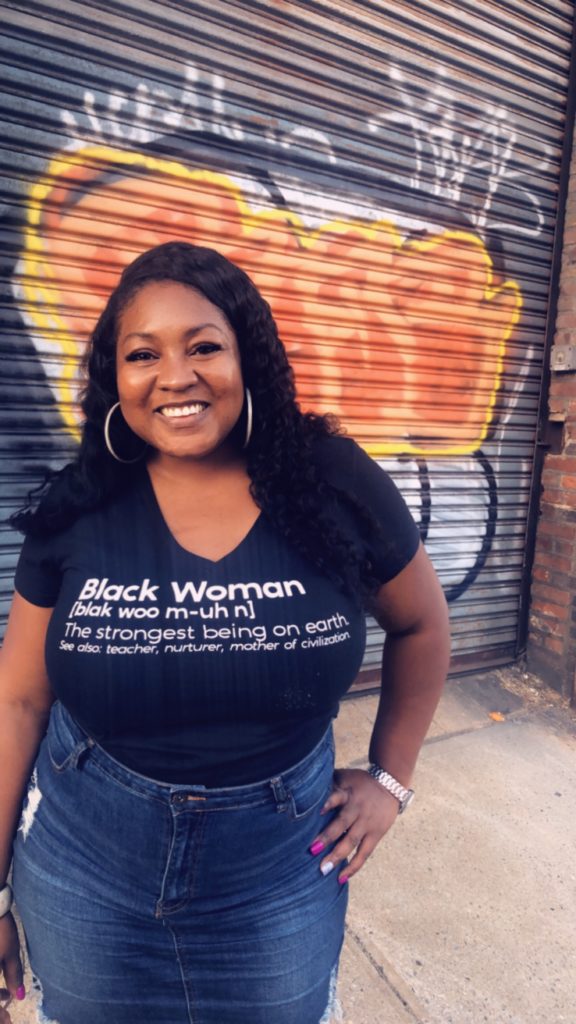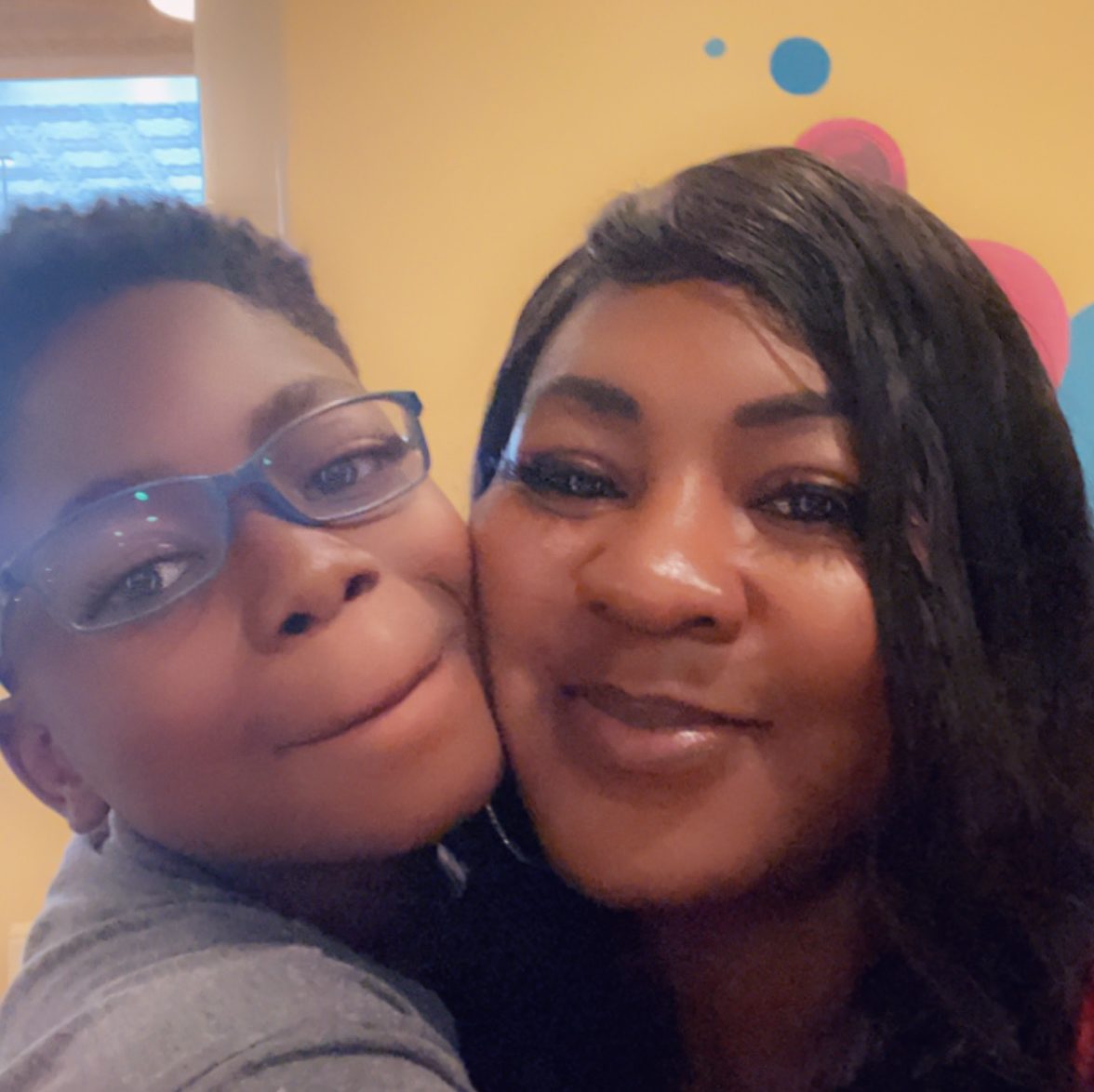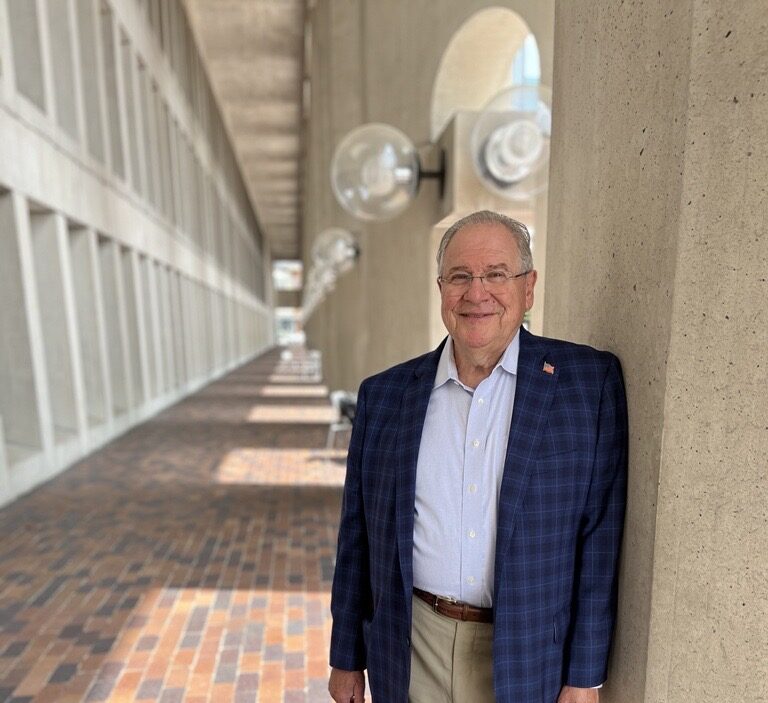The Ongoing Journey of Rachel Deleveaux to her Doctor of Education Degree and Beyond
Going the Distance as an Outlier
Growing up in Cambridge, Massachusetts, as Rachel Deleveaux did, it is a short distance to the Northeastern University Graduate School of Education, where Rachel is on track to defend her dissertation proposal in the beginning of the fall and with the intent to defend her dissertation at the end of winter and graduate with the class of 2022, completing her Doctor of Education degree (EdD). On Google Maps, the distance from her Cambridge elementary school to the Northeastern Boston campus is a little more than three miles. For Rachel, however, distances aren’t so much measured in miles; but distances are shaped, distorted and experienced very differently as a woman of color, as a first-generation college graduate and for a self-described “scholastically-invisible” girl.

“Starting in elementary school, I was never taught how to learn. I was recognized by my teachers for being bright, but I was never taught how to apply my inherent abilities or given the time and the attention needed to cultivate my potential, said Rachel. “At the same time, I was socialized at a very young age to think I wasn’t smart.”
Yet, Rachel drew upon her Christian faith, the experience of failing forward, and the fortitude to stay in college and eventually made it to a doctoral program. The hurdles were enormous: she was struggling academically while at University of Massachusetts Amherst, but she gained the help of a UMass dean and his wife who exposed Rachel to critical consciousness, taught her how to advocate for herself and have agency speaking up for her needs. Rachel was able to find her voice and complete her bachelor’s degree in Afro-American Studies from UMass Amherst and masters in Higher Education Administration from Suffolk University.
For Rachel, choosing Northeastern’s Doctor of Education program with a concentration in Curriculum, Teaching Learning and Leadership was partially based on some very practical decisions. The asynchronous schedule was one, as it helped her plan her classes around her busy schedule. She also liked that the classes were online and that there were students enrolled from around the world.
Getting into the program may not have been a hurdle but staying in the program raised issues for Rachel. “The likelihood that I would have persisted was slim to none without my dissertation adviser, Wendy Crocker, associate teaching professor. She respected me as a student practitioner and held the delicate balance of supporting my unique needs, while holding me accountable as a doctoral student.”
Rachel took classes in Educational Policies, Research, Situated Leadership and Educational Entrepreneurship, but her dissertation: ” The Effects of White School Culture and Black Mentoring on Black Academic Identity Development” raised the greatest hurdles. Rachel found it disparaging that Black children in 2021 were having similar experiences that she incurred as a child in the 80’s and 90’s. To some extent, Rachel felt that she was re-living her educational and emotional trauma from childhood, as she saw Black students — who also recognized that they were punished more harshly than white students with similar learning abilities and behaviors– denied the enormous social advantages and growth potential of being with their peers during recess.
Rachel highlights that “with only two percent of PhD holders are Black women, distances are abnormal, and you find yourself (as a Black woman) trying to go the distance, as an outlier. I understood that I was unique, but I had to battle my own perceptions of belonging.” Rachel finds it very comforting to have a strong support group of family members, friends and colleagues that she can share her experiences with throughout her doctoral journey.
She especially appreciates the role Wendy Crocker continues to play in her research process. “I didn’t initially view my research the way Dr. Crocker and my colleagues did. However, Dr. Crocker has a magnificent way of holding the ‘mirror’ up to my face so that I can see my own reflection. For this, I am forever grateful.” Rachel also attributes her persistence to her nine-year-old son Asher, who is her biggest cheerleader.

Rachel’s journey continues. She recently assumed her new role as Assistant Vice President, Organizational Culture, Inclusion, and Equity at Simmons University in Boston, where she leverages her research, and partners with staff, faculty and students to expand critical consciousness campus-wide.




